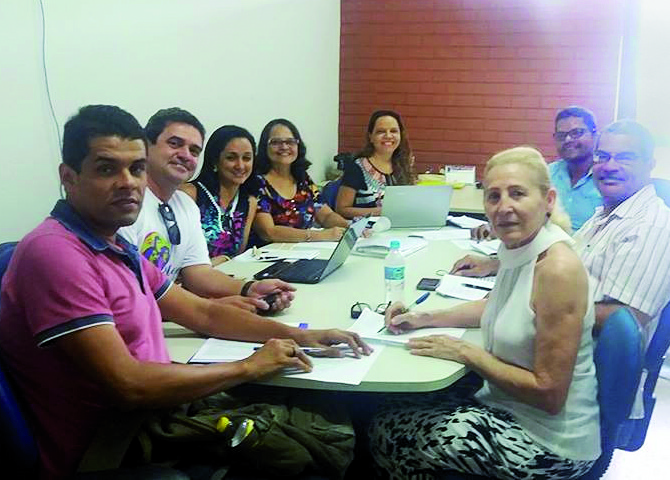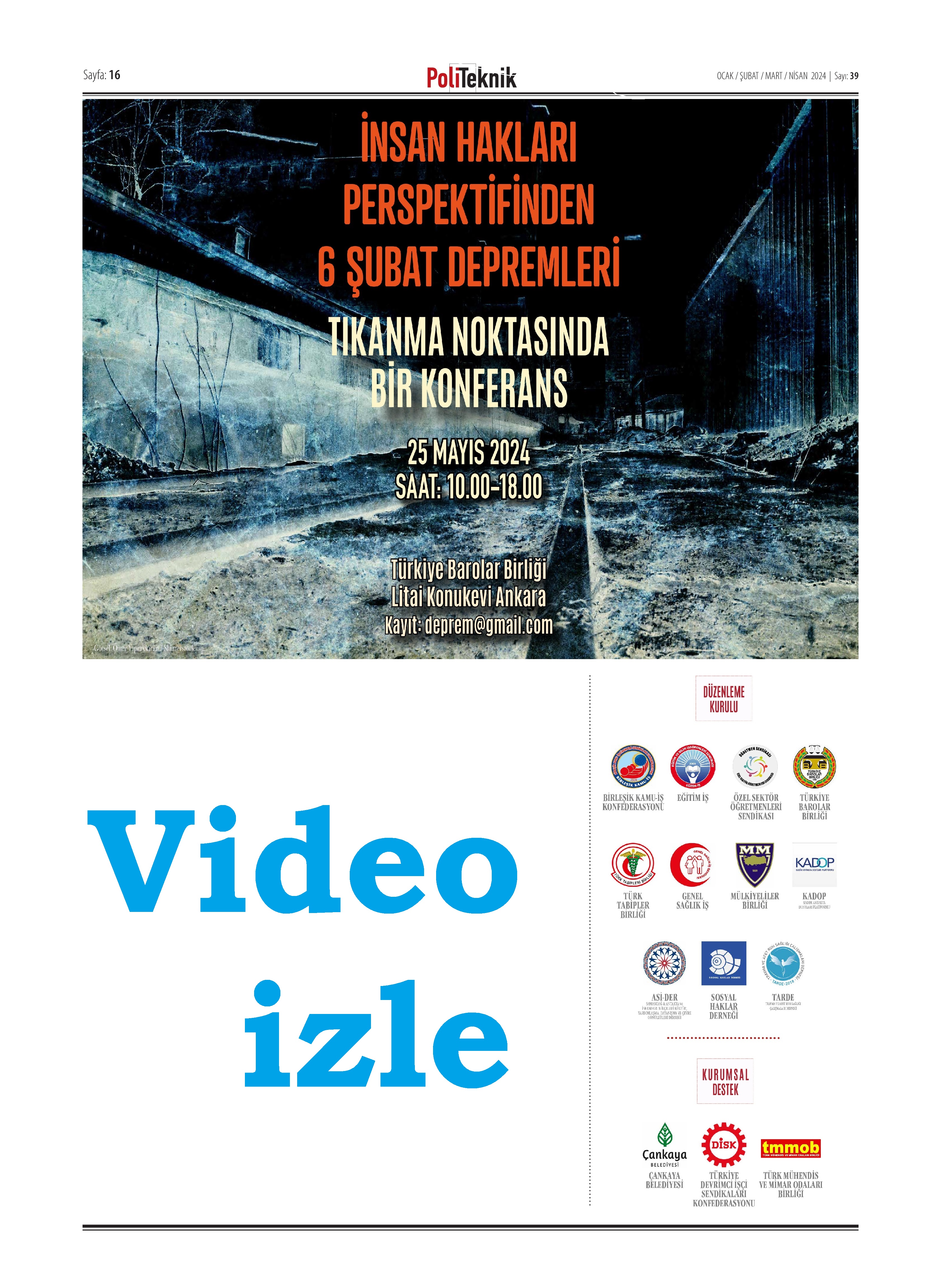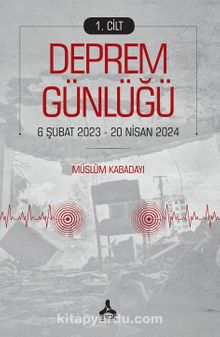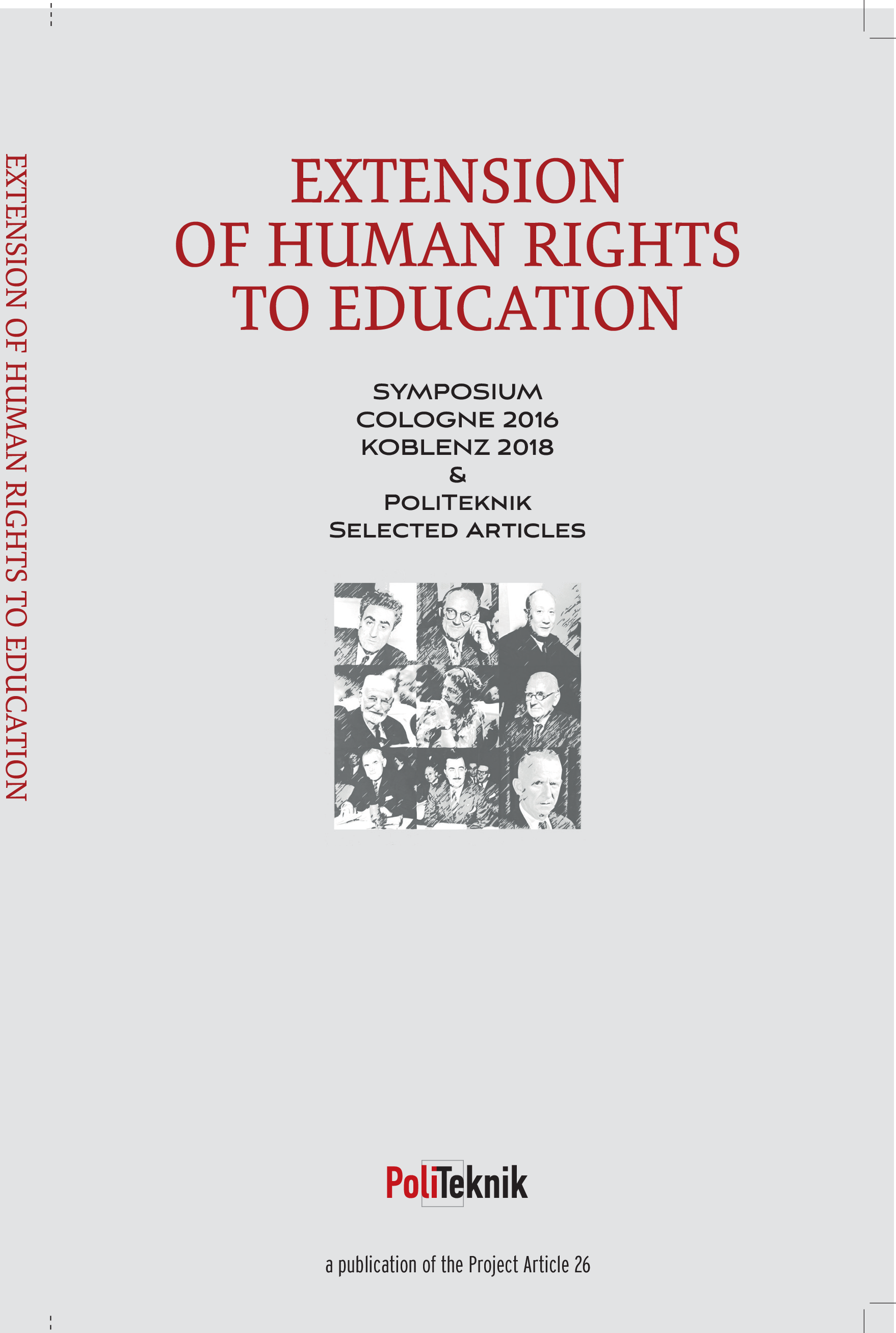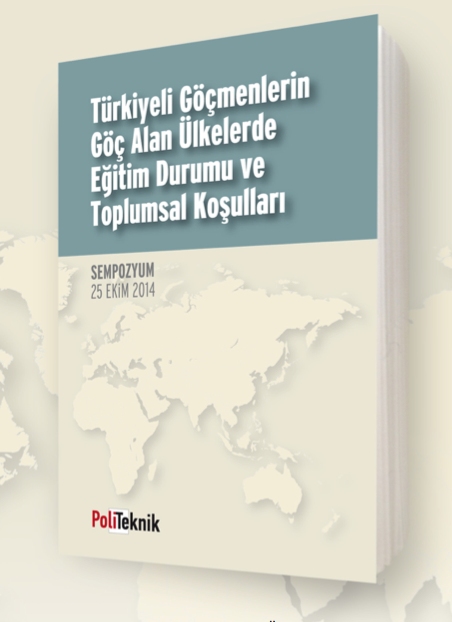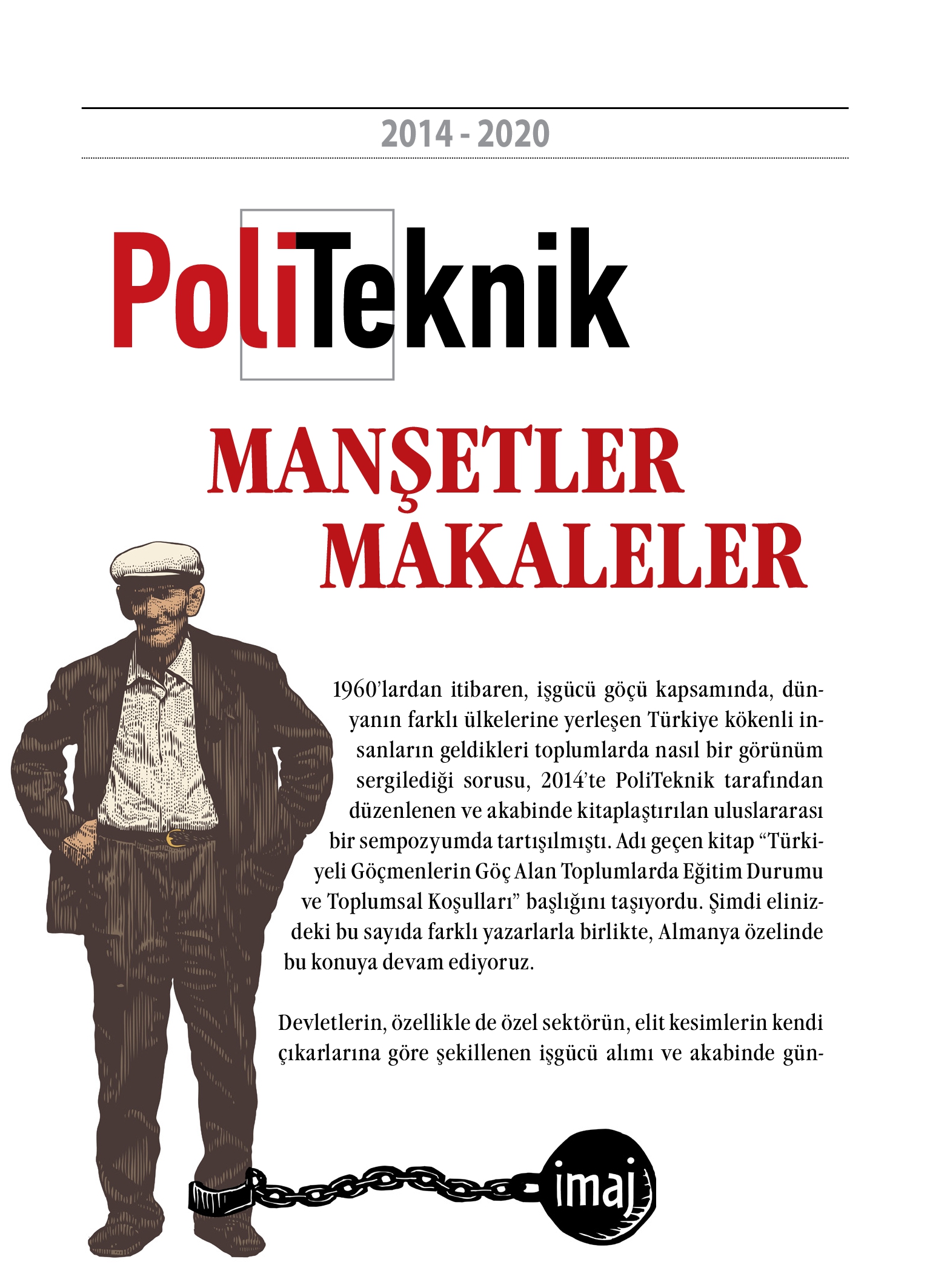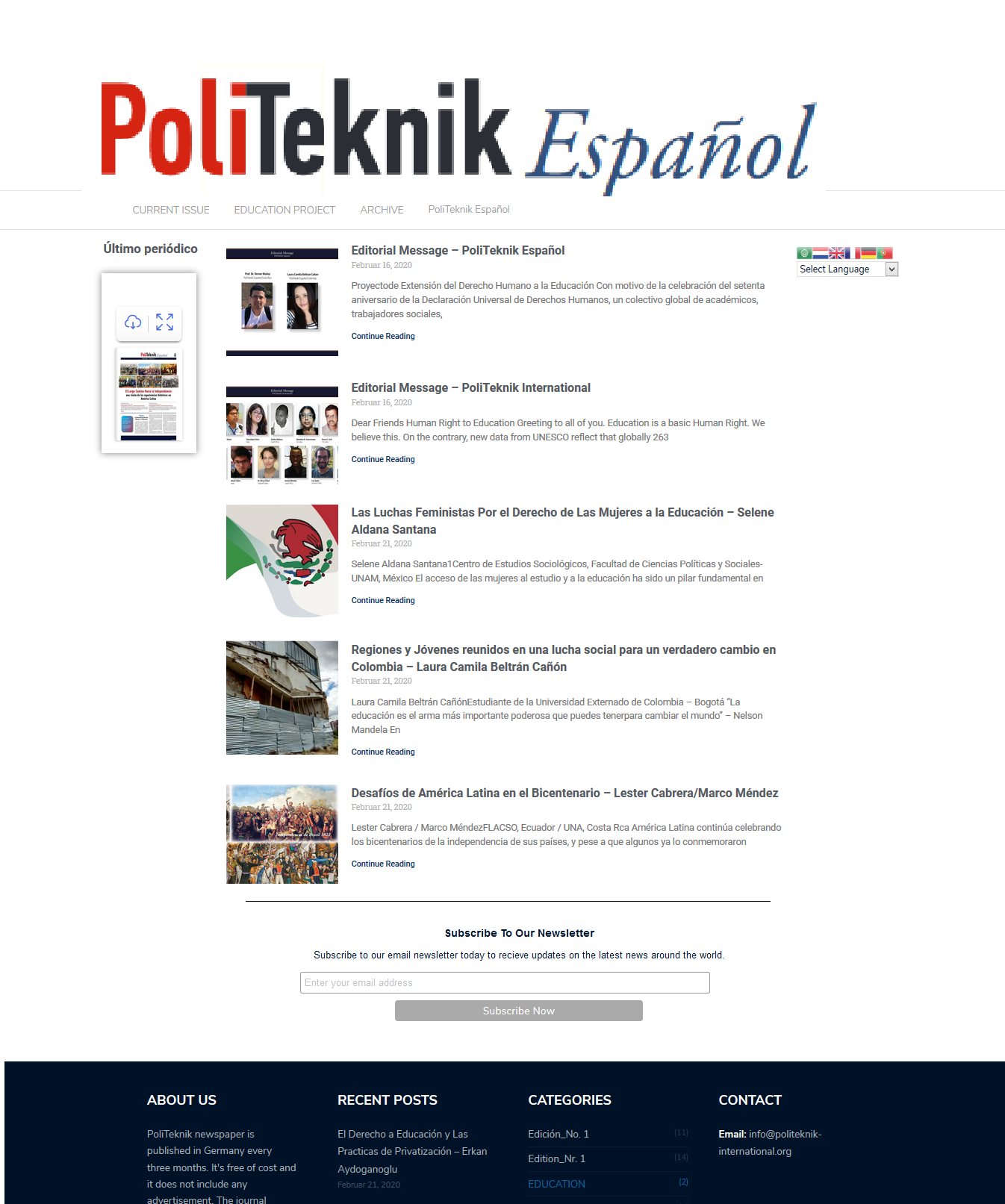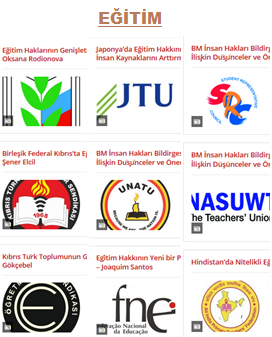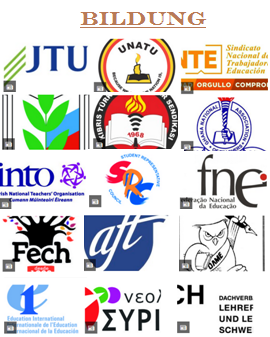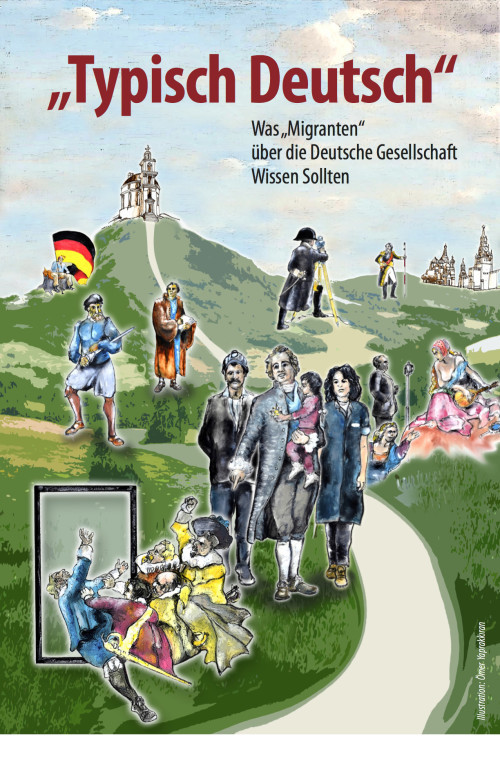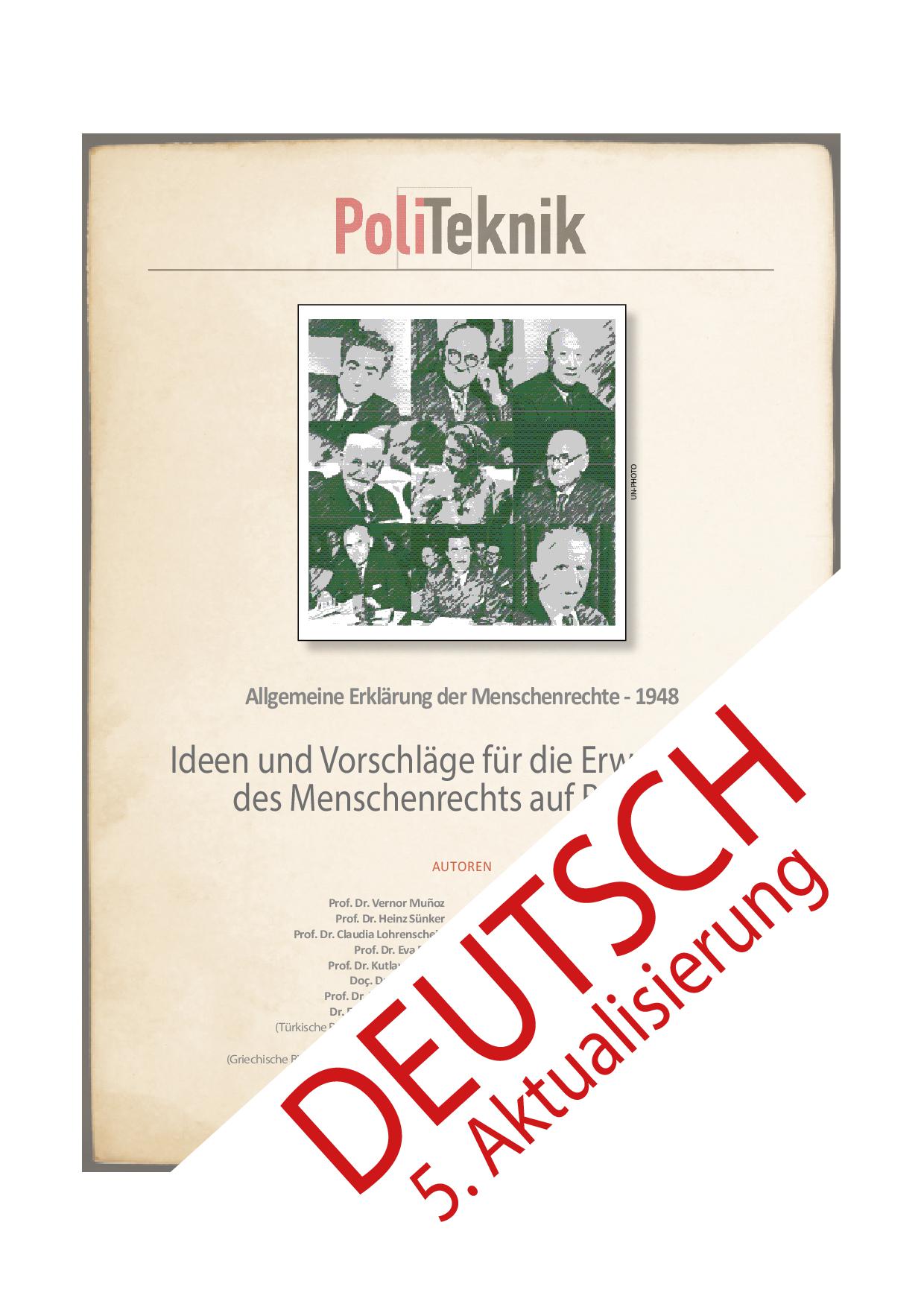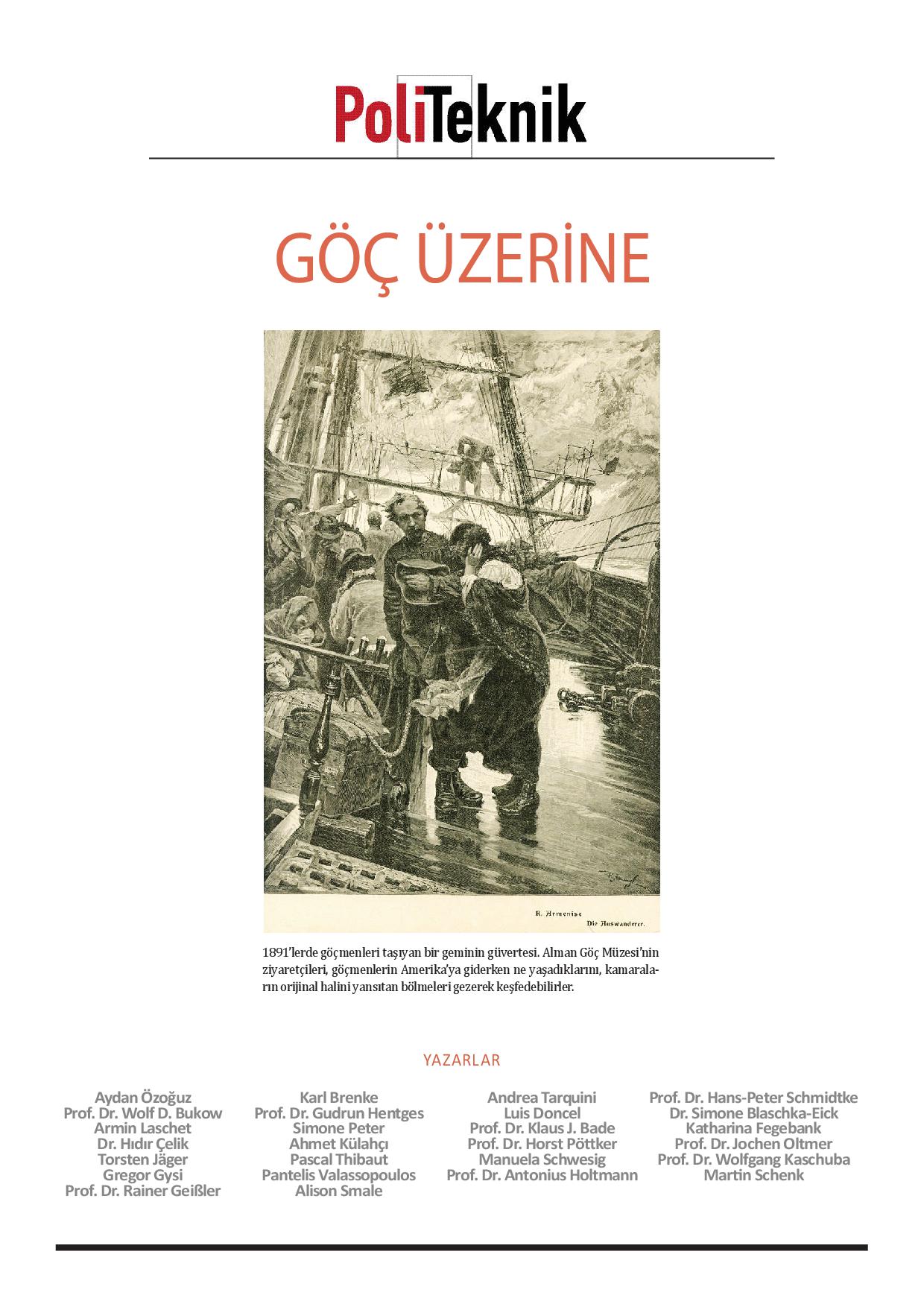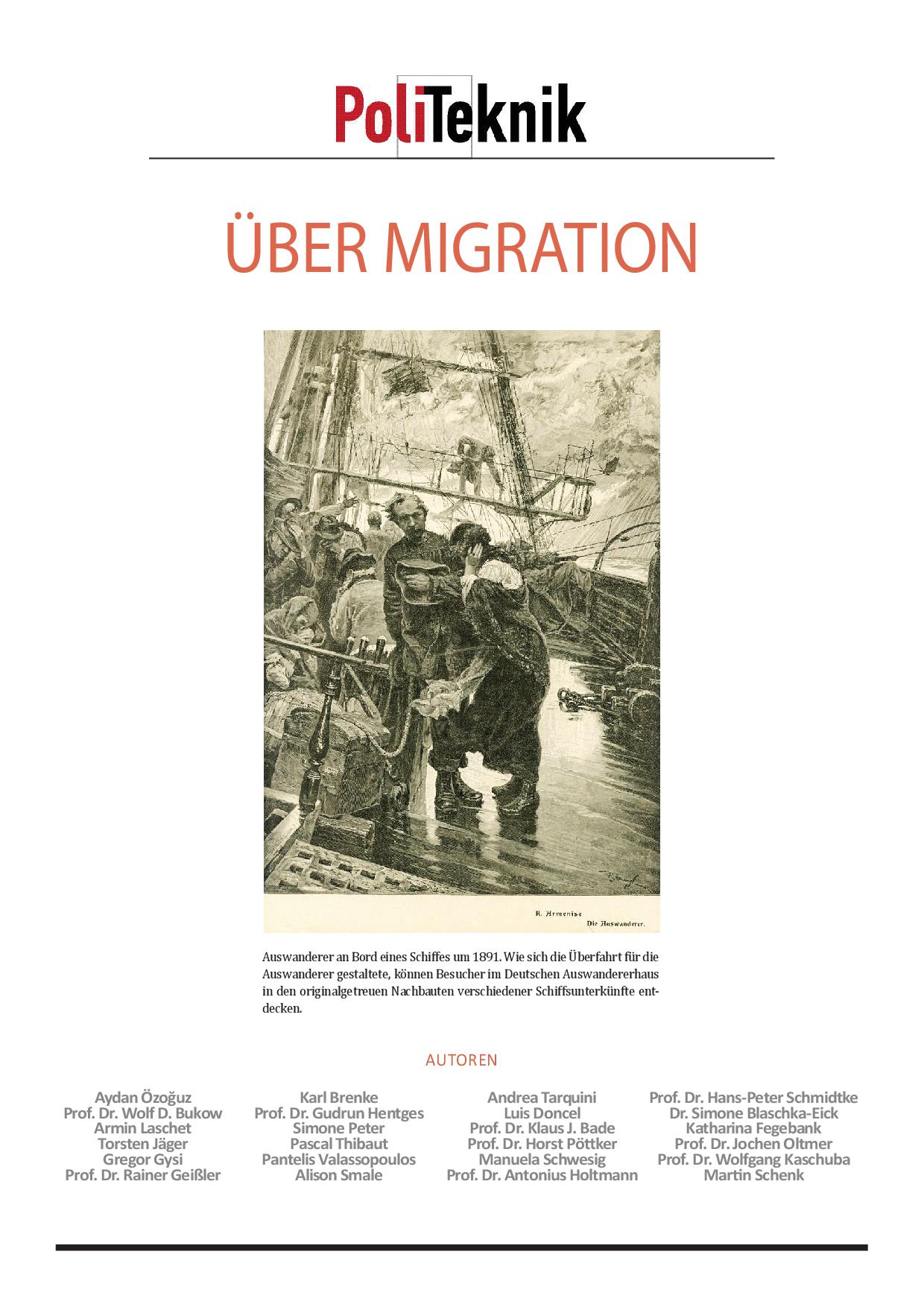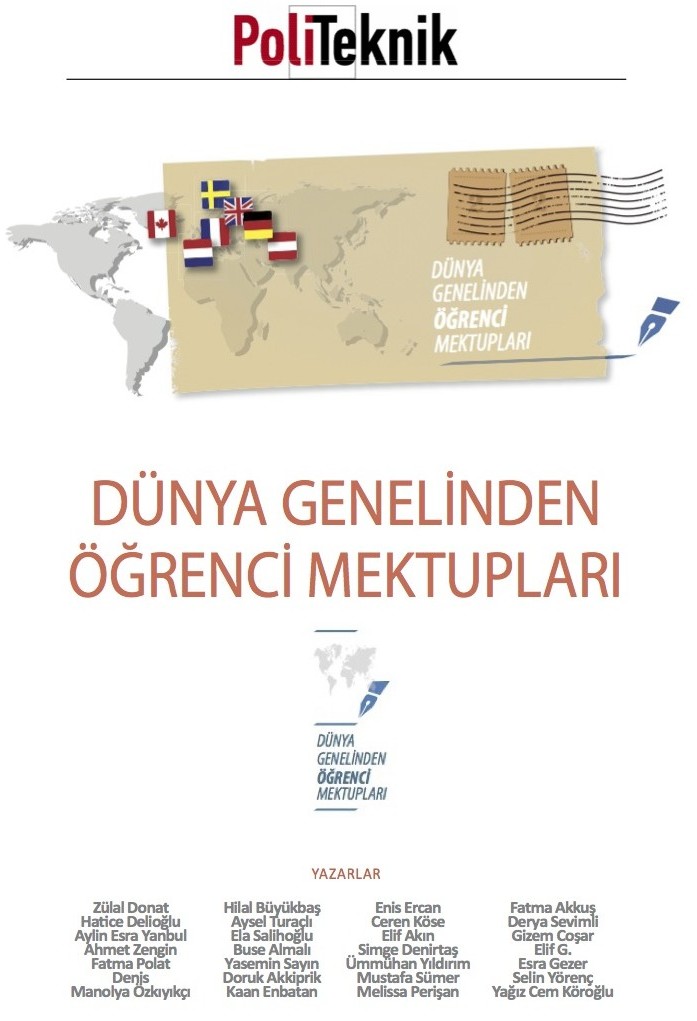Prof. Dr. Joseval dos Reis Miranda Prof. Dr. Lenilton Francisco de Assis
Prof. Dr. Charliton José dos Santos Machado Prof. Dra. Quezia Vila Flor Furtado
Prof. Dr. Alexandre Magno Tavares da Silva Prof. Dra. Maria Erenilza Pereira
Prof. Dr. Aparecida de Lourdes Paes Barreto Prof. Dra. Isabel Marinho da Costa
Prof. Dr. Alexandre Magno Tavares da Silva
Universidade Federal da Paraíba – Brasil
 THE AIM – The purpose of this text is to present the first steps on the contribution of Brazil to the international voluntary mobilization around the Expansion of Human Rights to Education. Initially, we would like to point out that, as of August 31, 2016 , Brazilian society has experienced moments of great political, economic and social unrest. The regression in socio-political-economic conquests, the denial of conquered rights points to increasingly obscure times in education, since this public policy, alongside others in the field of health, housing, transportation, human rights, etc., have suffered not only ideological, but budgetary attacks. Indeed, as the CNTE (Brazilian Confederation of Education Workers) affirms, “what they want is the end of public education as conceived – a place of broad thinking, which discusses not only the subjects of the school curriculum, but the very core of being Human from a social, political, economic, cultural and sexual point of view. They do not want to discuss school dropout, racial prejudice, gender violence or economic inequality. And this in no way contributes to building a strong and democratic school system.”
THE AIM – The purpose of this text is to present the first steps on the contribution of Brazil to the international voluntary mobilization around the Expansion of Human Rights to Education. Initially, we would like to point out that, as of August 31, 2016 , Brazilian society has experienced moments of great political, economic and social unrest. The regression in socio-political-economic conquests, the denial of conquered rights points to increasingly obscure times in education, since this public policy, alongside others in the field of health, housing, transportation, human rights, etc., have suffered not only ideological, but budgetary attacks. Indeed, as the CNTE (Brazilian Confederation of Education Workers) affirms, “what they want is the end of public education as conceived – a place of broad thinking, which discusses not only the subjects of the school curriculum, but the very core of being Human from a social, political, economic, cultural and sexual point of view. They do not want to discuss school dropout, racial prejudice, gender violence or economic inequality. And this in no way contributes to building a strong and democratic school system.”
THE FIRST STEPS – When we received the invitation to collaborate in the project to expand the human rights to education through Mr. Zeynel Korkmaz (Chief Editor of PoliTeknik Magazine), we realized that it is an important instrument for sharing knowledge and rehearsing alternatives with several comrades and companion teachers, students, social educators in civil society organizations, militants in social movements, etc. Based on our successful experiences and the challenges we face, we can propose ideas and suggestions to extend human rights to education, especially among children, adolescents, young people and adults who face social exclusion and vulnerability.
DISCUSSION GROUPS – Based on the invitation we received and the desire to collaborate with the initiative, we built the first steps to disseminate the project, in the form of discussion groups. As a first step we learned about the initiative through the documents sent by Prof. Dr. Eva Borst (University of Mainz) and Mr. Zeynel Korkmaz. With the basic information and the contacts by email and telephone, we started contacting potential proposers to provide information about the project. We gathered professors from the Federal University of Paraíba (State of Paraíba), Federal University of Pernambuco (State of Pernambuco), Federal University of Rio Grande do Sul (State of Rio Grande do Sul), Vale dos Sinos University (UNISINOS-Rio Grande do Sul); as well as Social Educators in socio-community projects that work with street children. Among them we have the Living Community Education Center – COMVIVA (State of Pernambuco) Finally, we are also in contact with CNTE (Brazilian Confederation of Education Workers) .
SOME PROPOSALS IN DISCUSSION – Within these spaces it is possible to organize group discussions. We try to follow a common itinerary, with some modifications according to local needs, let us see:
- Presentation of the theme and free conversation about the impressions of the participants (Erweiterung des Menschenrechts auf Bildung). What does this expression mean for our Brazilian reality at the present juncture?;
- Reflection on Article 26 of the Universal Declaration of Human Rights, and its highlights, confronting the reality of Brazilian education, especially aimed at the most marginalized and socially excluded;
- Exhibition of the material of Politeknik Magazine, about the beginning of the movement mobilization;
- Presentation on the project from the translation of some highlights present in the project document (Erweiterung Menschenrechts auf Bildung);
- Summary presentation on the Dossier (Idee und Vorschläge für die Erweiterung Menschenrechts auf Bildung-2018), containing texts, articles and reports on the project proposal based on the reality of each country;
- In some groups after the exposition of the “d” and “e” points, we held small debates where the participants brought their collaborations from their experiences either in the University or Socio-Community Projects;
- Presentation on the assembly of the “Erweiterung des Menschenrechts auf Bildung-2018, Brazil Working Group”. Some educators were willing to participate in the working group;
- In some group discussions suggestions were given for referral and collaboration with the proposal of voluntary mobilization along with the extension of human rights to education.
Considering that each institution, group and entity of the civil organization has its work experience, we suggest that a significant way to collaborate would be for the groups to identify successful experiences within their work practices that they consider fundamental for the expansion of Human Rights to Education -2018. Some of these ideas and suggestions are as follows:
Observatory of Popular Education and Social Movements – Coord. Orlandil Lima Moreira and Severino Silva
- Organization of the Seminar of the Observatory of Popular Education and Social Movements, with the theme “Extending Human Rights to Education-2018”.
- Insert the theme of the project in the agenda of the Observatory meetings.
Study Group on Youth and Adult Education – Coord. Luis Gonsaga Gonçalves and Quezia Vila Flor
- Insert the theme of the project in the agenda of group meetings.
- To elaborate short texts on the importance of extending human rights to education based on the experiences of public school teachers.
Department of Education Methodology – Coord. Lenilton Assis and Isabel Marinho
- Insert the theme of the project in the agenda of meetings of the Department of Education Methodology, reaching 49 teachers in the area of teacher training at the UFPB / EDUCATION CENTER);
- Socialize with teachers the mobilization referrals at an international level;
- Setting up a seminar on the subject of the project with the arrival of a professor of the German academic advisory council (Wissenschaftlicher Beirat).
Living Community Education Center – Coord. Verônica Silva and Socorro Silva
- To prepare short texts about the experience of working with children, adolescents, young people and adults in situations of social vulnerability and conflict with the law and contributions to expand human rights to education.
Study Group on Critical Pedagogy and Human Rights – Coord. Alexandre Magno Tavares da Silva
- Dialogue groups with the participation of students and teachers on the theme “Erweiterungs des Menschenrechts auf Bildung”.
Other groups are being contacted for the project discussion, however this can only be done from July 17, 2017 (the end of the university recess), they are:
- National Confederation of Workers in Education -CNTE
- Center for Citizenship and Human Rights (NCDH/UFPB)
- Post-Graduation Program on Human Rights (PPGDH/UFPB)
- Post-Graduation Program on Human Rights (PPGDH/UFPE)
- Observatory of Social Movements (UFPE)
- Social Pedagogy and Popular Education Collective -CEPOPES (UFRGS)
- Working Group on Epistemologies of Popular Knowledge and Ancestral Memories (UFPE)
MOVING FOWARD – After 70 years of the Universal Declaration of Human Rights, the legacy built in the field of Education undoubtedly still presents great challenges. Many rights were won, especially by the mobilization of educators, children, adolescents, youth and adults. In this sense, it is worth highlighting the significant role of social movements in Brazil, which for decades have provided possibilities for building a democratic society and an emancipatory and liberating education. We could not leave aside the thinker Paulo Freire (1921-1997), one of Brazilians greatest pedagogic highlights committed to a just, participatory, critical and creative society. Freire remains a great inspirer in the struggle of thousands of educators, both in school and non-school spaces. It is from him the thought with which I wish to close this little text – “Only in the Fight can one wait with hope”.

